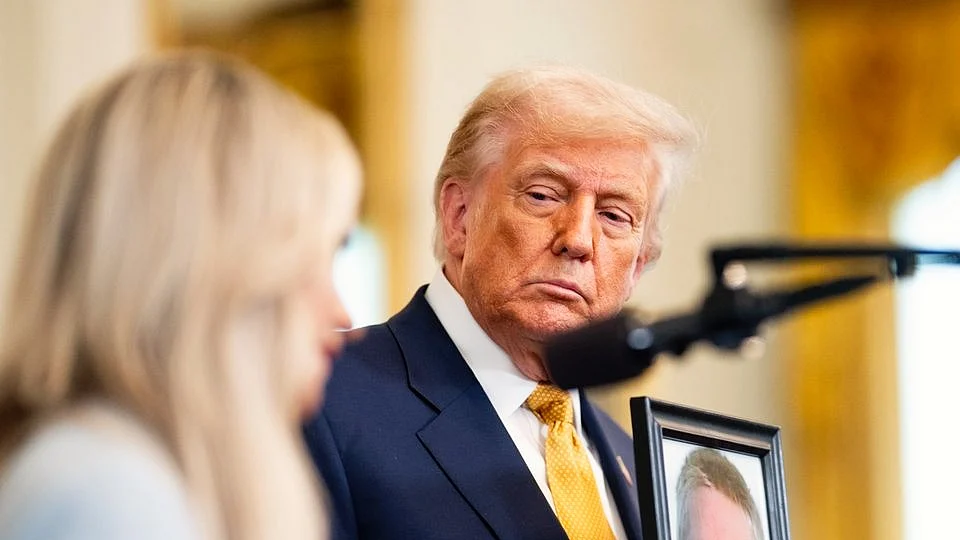Trump’s Epstein problem: Most Americans feel he's not coming clean
Reuters/Ipsos poll shows 69 per cent Americans believe Trump administration keeping secrets about accused sex trafficker Jeffrey Epstein

It turns out that pledging transparency and then promptly doing the opposite doesn’t go down well with the public. Who knew?
A recent Reuters/Ipsos poll has revealed that a solid majority of Americans — 69 per cent, to be exact — believe US President Donald Trump’s administration is keeping secrets about accused sex trafficker Jeffrey Epstein’s murky dealings, particularly when it comes to who his 'clients' may have been. Only 6 per cent of respondents thought the government was being forthright, while the remaining quarter presumably shrugged and said, “Who even knows anymore?”
For context, Epstein — wealthy financier, convicted sex offender, and social butterfly of the worst kind — was awaiting trial on federal sex-trafficking charges involving minors when he was found dead in his jail cell at New York City's Metropolitan Correctional Center, hanging off the side of his cell's bed, in 2019.
The official line says suicide, but given the circumstances (and security cameras that happened to be mysteriously nonfunctional at the time), it’s hardly shocking that conspiracy theories about his death continue to bloom like mould in a damp basement.
The Trump-era Justice Department had initially teased the release of damning documents, suggesting bombshell revelations were imminent, with US attorney-general Pam Bondi as good as announcing she had the Epstein files on her desk. Trump's supporters, ever eager for proof that someone in government was finally going to drain the swamp, were practically salivating.
Then came the U-turn. The promised transparency was replaced with a padlocked filing cabinet, an attempt to deny that any files exist at all, a muttered "national security" and, extraordinarily, an attempt to link the files to the Obama administration.
Naturally, the base wasn’t thrilled. According to the poll, nearly two-thirds of Republicans now believe their own government is keeping Epstein’s secrets under wraps — an impressive bit of bipartisan agreement, if nothing else.
The administration’s handling of the issue earned it a paltry 17 per cent approval rating, making it the most poorly rated item on the list. Even among Republicans, support was lukewarm at best: just 35 per cent approved, while 29 per cent disapproved and the rest wandered off into the warm embrace of plausible deniability.
But don’t worry, the White House has plans. Reuters reported that Trump and his team were “weighing options”, which apparently include the potential unsealing of new documents (again), appointing a special prosecutor, and maybe even executive orders about paedophilia — because what better way to show resolve than through vague administrative gestures?
And then came the Trumpian tantrum. Facing mounting pressure from his own base, the president lashed out — not at the alleged traffickers or the institutions that failed, but at his own supporters. Those pressing for answers were branded “weaklings” who were helping Democrats. “I don’t want their support anymore!” he thundered in a social media post, in a moment that may or may not have been dictated by his spleen.
He also tried out a few typically 'Trumpian' red herrings — the more bizarre among them being his self-proclaimed success in getting Coca-Cola to use 'real cane sugar' in their beverages, a post that California's Democrat governor Gavin Newsom picked up on in typically deadpan style.
Of course, this entire saga dovetails neatly with the wider constellation of American conspiracy theories. Epstein’s death, much like his life, became fertile ground for the paranoid imagination.
Enter QAnon, the ever-mutating, far-right fever dream that insists there’s a secret cabal of satanic, cannibalistic child molesters running the US government — and that Trump is the lone warrior standing in their way. Naturally, they were watching this Epstein debacle with interest, if not popcorn.
Privately, Team Trump has been attempting some damage control, reaching out to key MAGA influencers to tamp down the noise. The message: stop whining about Epstein and get back to the usual menu of anti-immigration rhetoric and vague nationalism.
Still, the fallout is hard to ignore. The Epstein episode has exposed real fractures within Trump’s support base and put a spotlight on one of his few consistent talents: the ability to control the narrative. Or at least, he used to.
The Epstein discontent also lands at an awkward time. Trump’s base is already grumbling about US strikes on Iran, endless entanglement in Ukraine, and what they see as squishy deviations from immigration hardlines. In other words, the MAGA faithful are not in the mood for betrayal — even the kind that arrives cloaked in bureaucratic excuses and redactions.
To add to the mess, Trump’s own social ties with Epstein in the 1990s and early 2000s — with several photos and videos as proof — remain a point of awkward curiosity. During Epstein's partner Ghislaine Maxwell’s 2021 trial, Epstein’s longtime pilot, Lawrence Visoski, testified that Trump had flown on Epstein’s private jet multiple times. Trump, for his part, insists he was never on the plane and maintains he’s done nothing wrong. Legally, that’s accurate — he hasn’t been accused of anything. But for a man who once claimed to hire “only the best people”, Epstein’s inclusion in the social calendar does raise some uncomfortable questions.
With agency inputs
Follow us on: Facebook, Twitter, Google News, Instagram
Join our official telegram channel (@nationalherald) and stay updated with the latest headlines
